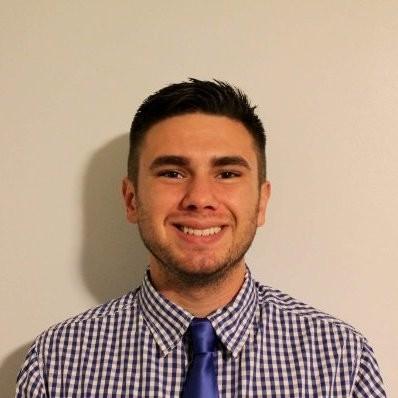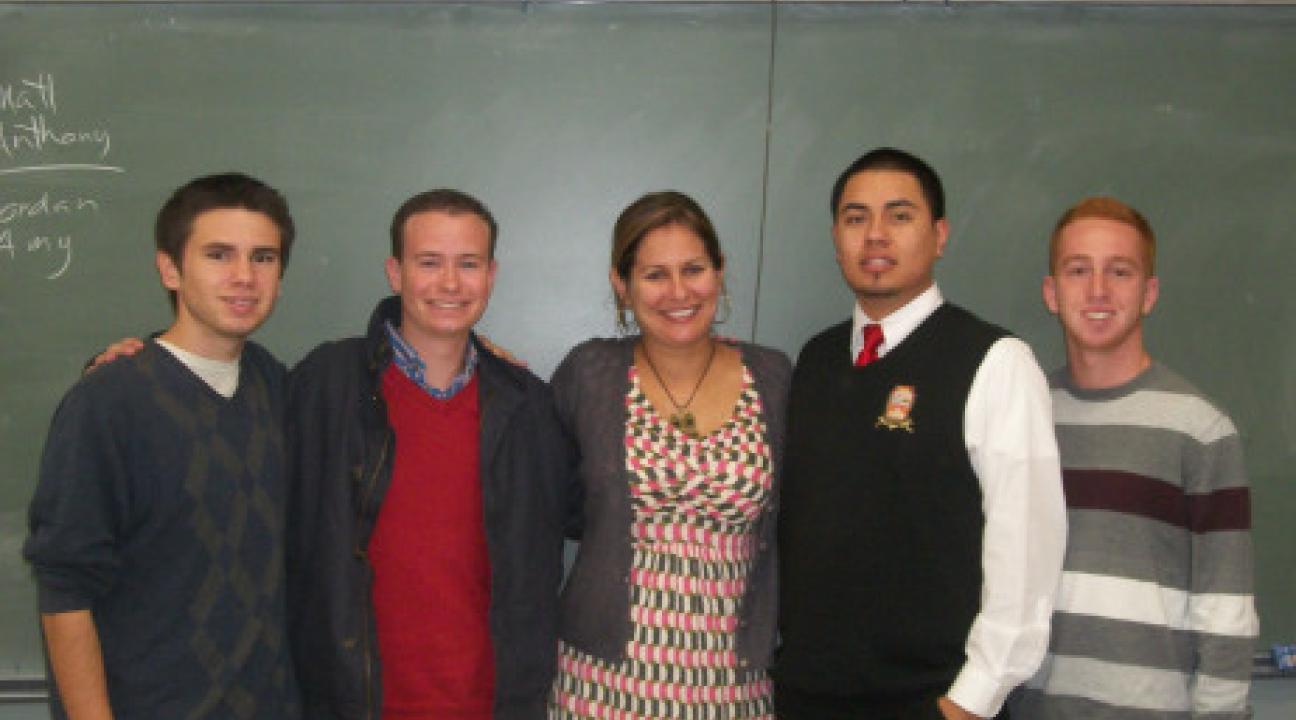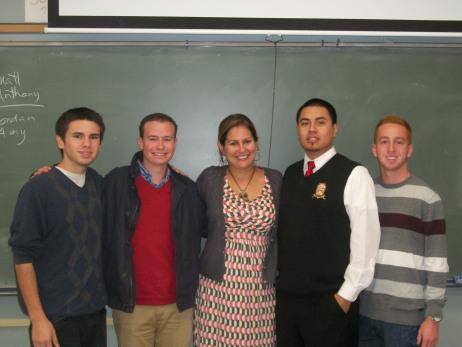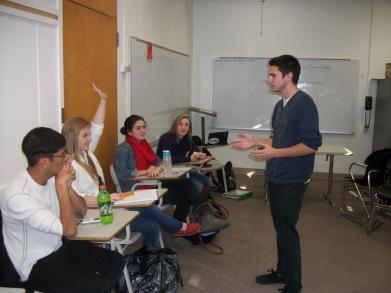Small Acts Make Big Differences
I have been working at the Center for Community Engagement since the fall of 2010. Learning the responsibilities and duties that this office tackles enlightened me in the CCE's mission, which I have been working hard to contribute to. Working for the CCE, not only did I find service-learning to be valuable to students in the classroom, but also valuable to the community at-large. However, I was never able to experience the benefits firsthand because I never got the opportunity to take a service-learning class up until now. When you aren't directly involved and engaged in the process it is difficult to understand which parties benefit the most from service-learning because you only look at it from the outside in. Fortunately, I was able to get the opportunity to look at service-learning from the inside out in Political Science 202.
From the local level to the federal level, our lives revolve around the politics that take place within our "boarders". We can not hide or shut politics out of our lives. Laws and institutions form our society. It is our civic responsibility to take part in the process of democratic freedom through political participation. Today, it seems that many college students are avoiding that responsibility, showing little or no interest in how important their participation is. As a political science major, I believe strongly on the principles that our country was built on, one of them being everyone deserves the right to vote. How do I help students become politically engaged on campus and in the community while helping them discover their passions so they can effect change in their communities? How do I reconnect young students to the meaning of democracy, community, and citizenship when their voices aren't always heard? I attempted to answer those questions when I signed up for Professor Cynthia Boaz's Political Science 202 service-learning class. This class gave me the chance to perform my civic duty as an informed college student by presenting in front of a freshman class on the importance of voting.
This service-learning project gave me the chance to use the knowledge I gained from the classroom and apply it to the community. I was able to combine my academic study and my service to further aid my understanding and retention of what I was learning in this class. The service-learning project was a way for me to actively participate to address a need in the community. There were a variety of projects to choose from each with a different target audience. I decided to tackle students, although they weren't able to vote yet, I thought by informing them early enough they would show enthusiasm in future political voting. My team's presentation defined to a freshman class the democratic system of voting and the important role it plays in our lives. Even though my project was intended to teach a freshman class, I also learned things I didn't know before. Voting should be important to everyone because it reflects what the common people want and the expectations of those representing them. In exchange for the time I put into this project, I was be able to help potential voters want to be involved in the policies that affect them.
At the start of my presentation I asked if anyone was eligible to vote but for some reason chose not to. I was admired by one student's honesty as she confessed that she had not exercised her right to vote. I decided that my goal was to change this young woman's mind by the end of my presentation and get her politically engaged. Even if I was able to change that one student's mind, I believe my small act will have made a big difference in her life and result in a "domino activism effect".
Before I turned eighteen, I had already realized the seriousness of being politically engaged, whether at school or in my community. When I became eligible to participate in political affairs, I knew it was my civic duty to be a part of the democratic system and allow my voice to be heard. I have always been involved and never took my freedom to vote for granted. Around my campus I interact with students about politics, and to my surprise, many students do not take the right to vote seriously and overlook it as being a waste of time. In my service-learning presentation, I showed the students a map which categorized every country by how free its citizens are. The students seemed to be surprised to see how many countries around the world actually suppress their people and don't allow them to vote. Something I learned in my class was that voting is one of the most important tools nation's citizens can have. Voting is one of many weapons in our society that allows democracy to thrive in a peaceful manner.
My mission that day was to have a positive impact on the freshmen students by encouraging them to vote and share why voting is important to not only them, but to people all over the world. Living in one of the world's most developed and powerful nations, we as people have a civic duty to past and future generations to keep democracy prospering. This civic responsibility can never be given or taken; it is something we are born with, whether we decide to act on it or not. Our decisions and agendas reflect what happens in the rest of the world. As Americans, we are among the freest of people, and yet some take their freedom for granted. At the end of the presentation, I asked the same girl who I asked a question in the beginning of class if I had made a difference on how she viewed voting. Her response to my question was, "Absolutely!" I then asked, "Are you going to vote in the future for any elections?" and she answered, with a smile on her face, "Yes!" It seemed that I had made a difference in her life and that's when I knew that my presentation and my duty as a citizen was successful.

Author: Taylor Bonilla





